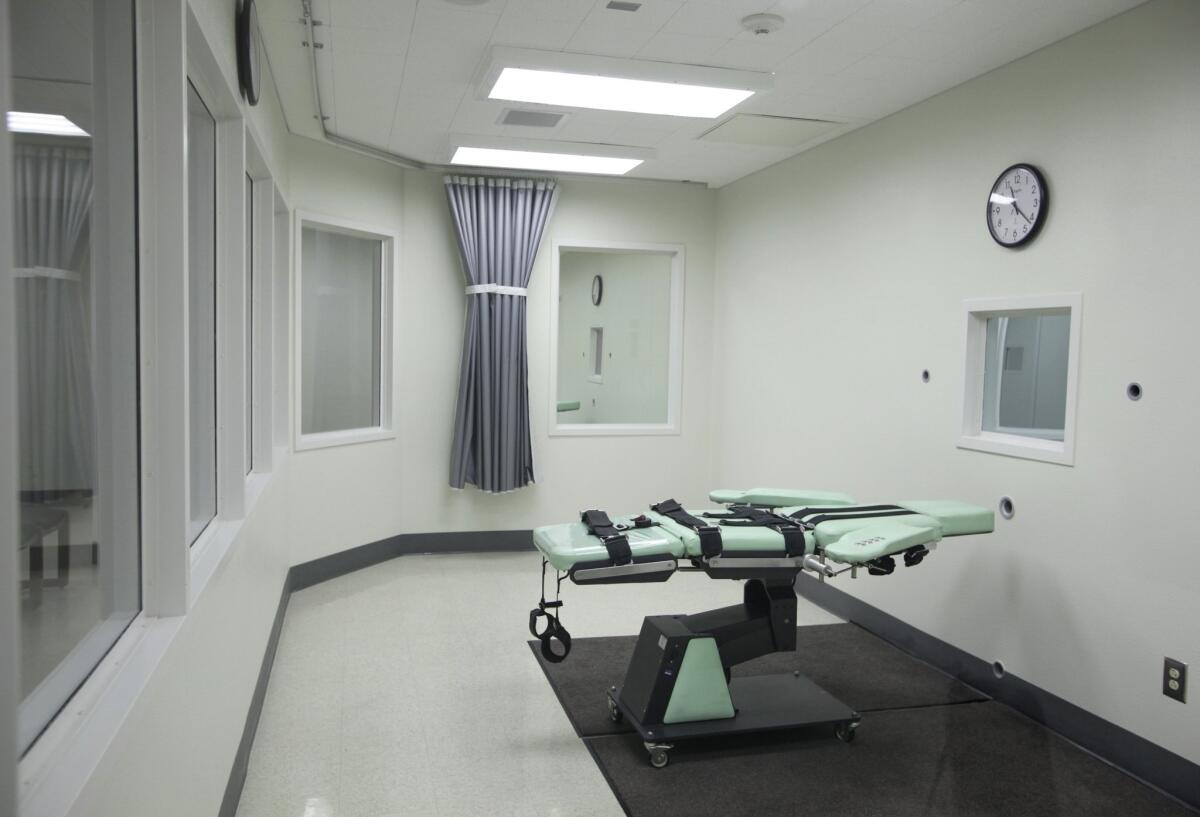ACLU files suit to thwart resumption of executions in California

Reporting from San Francisco — A civil liberties group on Tuesday filed a lawsuit that could slow California’s plans for resuming executions.
The ACLU of Northern California challenged a state law that gives the Department of Corrections and Rehabilitation wide flexibility in establishing execution procedures.
Delegating such policy decisions to a state agency, the suit says, violates separation of powers provisions of the California Constitution.
The suit follows a Nov. 4 decision by the corrections department to finalize new regulations for conducting lethal injections and the subsequent passage of a ballot measure intended to expedite executions.
A separate lawsuit challenging Proposition 66 is pending before the California Supreme Court. Votes on the measure still are being counted, but it is winning by a narrow margin.
Californians last week rejected another ballot measure that would have replaced the death penalty with life without the possibility of parole.
The ACLU suit, challenging a 1941 state law, could stall executions even if Proposition 66 were allowed to go forward.
The state has not executed an inmate since 2006. Courts struck down California’s previous three-drug lethal injection method, and Gov. Jerry Brown’s administration did not propose a new protocol until last year.
There are 750 prisoners on California’s death row, the largest in the country, and at least 16 have exhausted their appeals and could be executed.
The inmates facing imminent execution are older than 50 — one is approaching 80 — and were condemned for crimes that took place decades ago.
Kent Scheidegger, legal director for a statewide law-and-order group, said executions could resume during the first half of next year if courts dismiss the lawsuits quickly.
“Assuming we defeat all these attempts to get injunctions, it could be in the first half of next year,” said Scheidegger, legal director of the Criminal Justice Legal Foundation. “I think that is reasonable.”
The latest suit says the Legislature, not a state agency, must set parameters for the kind of lethal injection procedure California adopts. It also argues that lawmakers should be the ones deciding on the acceptable amount of pain for an inmate to experience, the acceptable amount of time it takes for the inmate to die and the level of reliability of the execution process.
“Those questions need to be decided by elected leaders, not un-elected bureaucrats,” said Linda Lye, senior staff attorney for the ACLU of Northern California.
A similar lawsuit filed in Arkansas, Lye said, forced that state’s legislature to clarify how lethal injections were to be carried out.
Scheidegger said he doubted the California effort would succeed.
“They are attacking what the law has always been,” he said. “I don’t think the California Supreme Court will follow the lead of the state of Arkansas.”
Twitter: @mauradolan
ALSO
‘He will always be my son’: Mother defends former football standout after latest arrest
More to Read
Sign up for Essential California
The most important California stories and recommendations in your inbox every morning.
You may occasionally receive promotional content from the Los Angeles Times.











